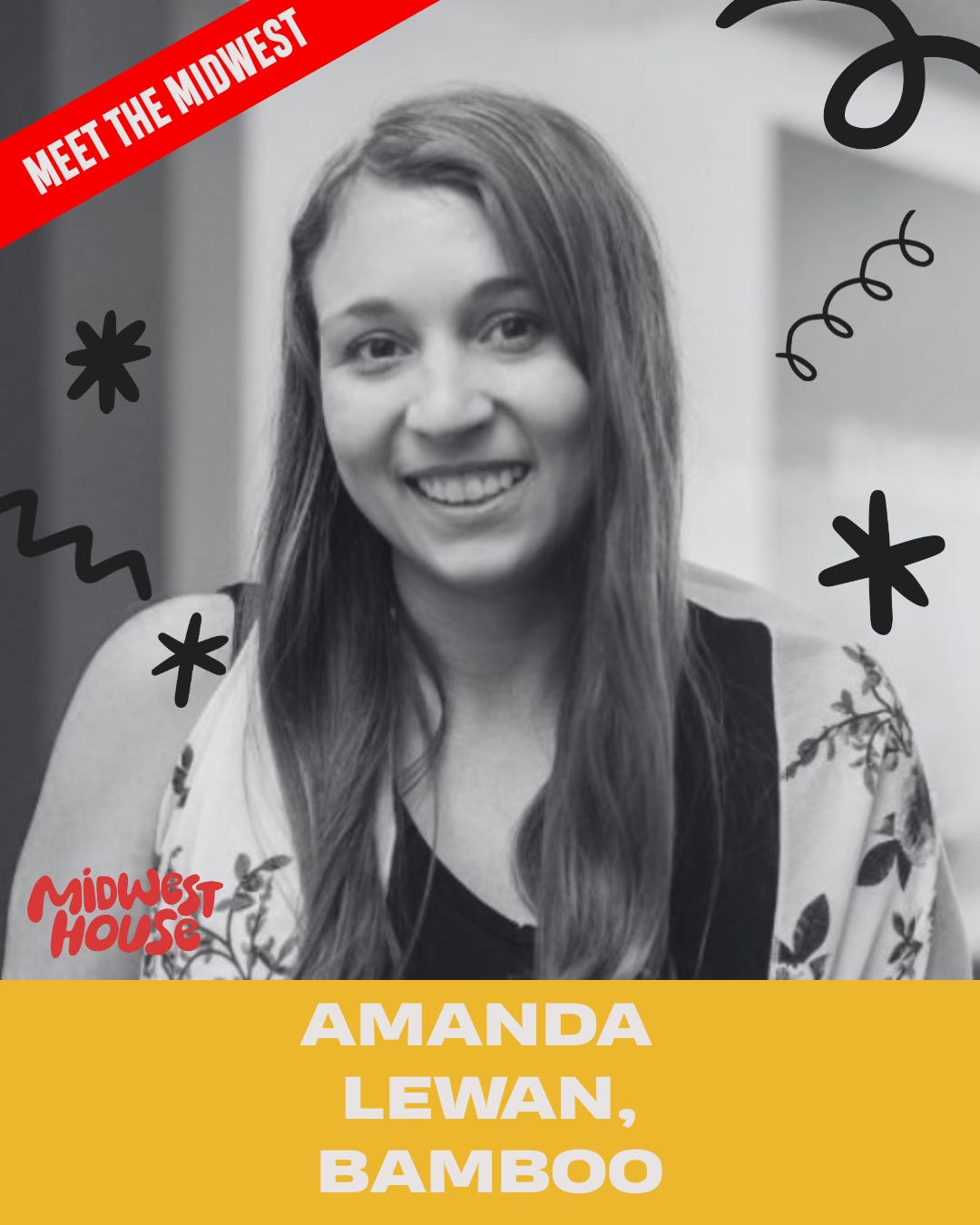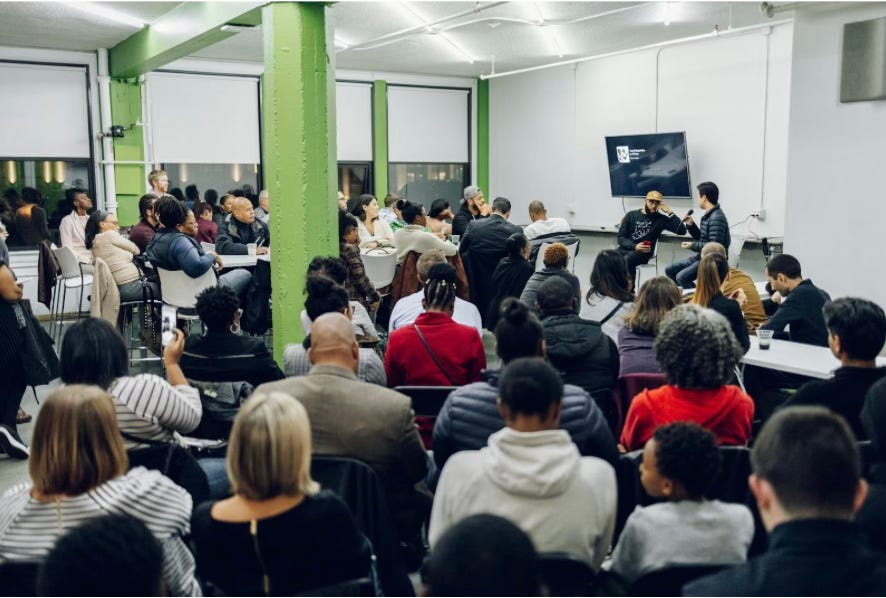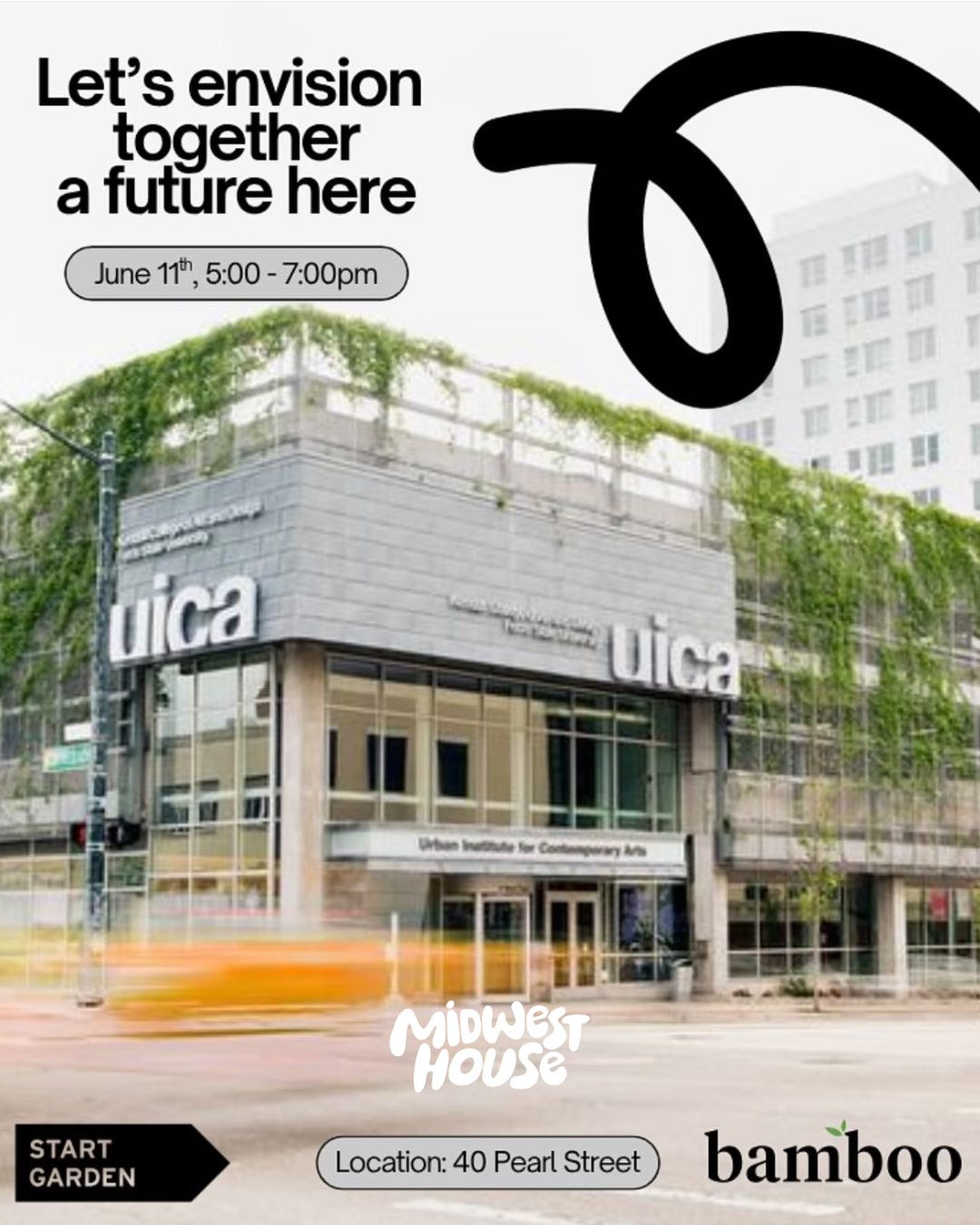This week we are celebrating the fact that Bamboo is opening a new co-working space and innovation hub in our hometown of Grand Rapids, MI by featuring the legendary Amanda Lewan!!!
Amanda has been a friend and collaborator of ours for nearly a decade, and truly helped lay the foundation much of Michigan’s startup community.
If you’re in the area and interested about learning more about our new headquarters at Bamboo Grand Rapids - we’re co-hosting an event tomorrow with Bamboo & Start Garden at 5pm in downtown GR.
About Amanda Lewan:
Amanda is the co-founder of Bamboo, a real estate development and operating company that builds community hubs supporting entrepreneurs and creatives. Her mission is to build Michigan’s ecosystem. Read more on her journey or specific trends in Michigan over at Midwest Humble.
Radically Inclusive Emerging Ecosystems
Early on in my journey building Bamboo, I received feedback.
A young person in a leadership position at a corporation once said to me that we were “too radically inclusive.”
Bamboo at the time was home to a diverse group of founders and innovators. We housed tech accelerators and co-led one of the largest Startup Weeks in the country.
I was taken aback by this comment. Were we too inclusive? But also, what was wrong with that?
At the time, this individual was pushing us to focus on only one industry or sector of Michigan's economy.
It’s an interesting perspective and I want to dive into why or how radical inclusion might lead to faster community development in an emerging ecosystem. It’s our theory that by serving as an open platform for entrepreneurs we might foster greater collective success.
How Bamboo’s Community Model Started in Detroit
Bamboo started with a $5,000 loan from my business partner’s dad. We grabbed a few cans of paint, picked up Ikea furniture, and opened a coworking space in Downtown Detroit. This was 2013. Change was beginning. The city was starting to recover from bankruptcy.
I was the first “community manager” and my passion was helping startups. There just weren’t many of us startup founders yet. So, we had to develop the ecosystem around us. We started hosting open free community events, welcoming founders and VCs from all over the country into our little 2,000 sq ft space. Though we were passionate about tech startups, we opened our doors to all types of companies and people to join us.
One day, I read a book by Brad Feld called Startup Communities. I realized this openness was key to growing our startup ecosystem. That’s one factor they found work well in Boulder.
Now ten years later, we’re building out our fourth location and largest, a 40,000 entrepreneurship center in partnership with Start Garden and Midwest House in downtown Grand Rapids. This center will draw in people from all over to support tech innovation and launch high growth startups, but it will also remain open to all to join us.
It’s in this openness that new perspectives are gained. It’s in this openness, investors, founders, builders, designers, artists, makers, service providers collide. It’s in this openness that new companies will be formed, and more people will choose entrepreneurship.
And maybe it’s okay to have both areas of expertise in an industry, and a welcoming platform for all to plug into when you’re in an emerging ecosystem. Maybe you need a little bit of everything.
Changing Culture in Michigan’s Ecosystem
I grew up in a working class suburb of Detroit. All my friends' parents worked for automakers. There was nothing wrong with working in auto, but I knew it wasn’t for me.
I also grew up in a segregated community. My mixed black and white and Lebanese family lived in the city, and my white family stayed in the burbs. My grandmother’s house was our gathering place in Detroit, and yet it was on a block on the east side that stood empty and blighted. As I grew older, I realized how much I wanted diversity of people and perspectives in my life. My family worked hard in factories or retail or service industries, and I am the first of many single working women that gets to have the opportunity to choose entrepreneurship.
But we are still learning to embrace culture change in our region. We are amidst a long-term shift from corporate and manufacturing dominance, to a new waves of startups, to diverse industries and people of all backgrounds leading them. We need to learn to keep taking risks and invest in our founders with an openness to all.
We also live in the age of companies and institutions rebranding or removing DEI, so let’s consider inclusion from a new perspective. If we do not have an open platform and openness in our ecosystems, then we risk missing out on developing our unique culture and community. We miss out on the magic that happens in a startup ecosystem when a collective comes to build together.
Come join me at Start Garden in June to share feedback for our new hub coming to Grand Rapids. I look forward to continuing to learn from you all here on the Midwest House Substack too.









Loved hearing how you started!
Thank you for investing in Grand Rapids and finding Start Garden as a local partner. Look forward to leveraging your space and connecting with many varied innovators.